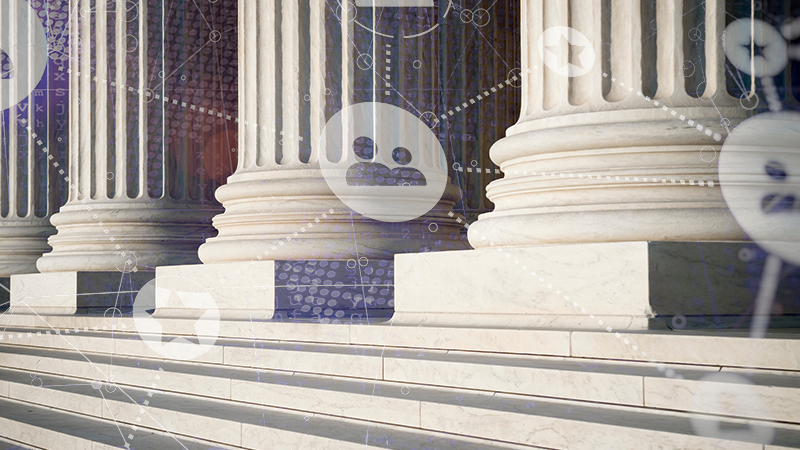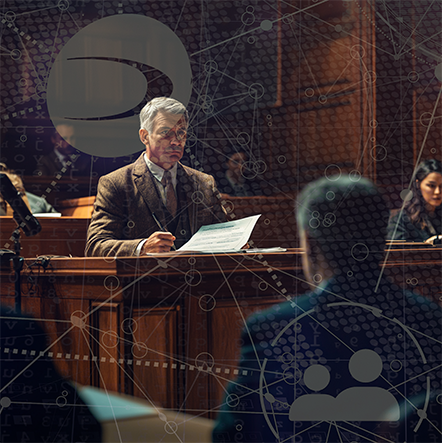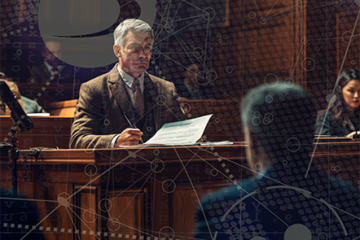Introduction to Electrical Engineering Expert Witnesses in Construction Defect Cases
Electrical engineering expert witnesses are indispensable in legal cases involving construction defects. Their technical expertise and investigative skills allow them to bridge the gap between complex electrical systems and the legal nuances of a case. Attorneys rely on these experts to analyze technical evidence, assess compliance with codes and regulations, and explain findings clearly to judges and juries.
These professionals contribute significantly to both plaintiff and defense strategies. They can identify defects, determine liability, and clarify the cause-and-effect relationships that underlie electrical failures or malfunctions. Understanding these experts’ critical roles is essential for building a strong legal case involving construction defects.
Understanding the Role of Electrical Engineering Expert Witnesses
Key Responsibilities in Legal Proceedings
Electrical engineering expert witnesses take on critical responsibilities that influence case outcomes. These include:
- Investigating electrical system failures and malfunctions to identify causation and contributing factors.
- Reviewing technical documentation, such as blueprints, electrical schematics, and compliance records.
- Conducting inspections of physical evidence, including wiring systems, circuit breakers, and electrical panels.
- Providing detailed written reports summarizing findings, with technical analysis and professional opinions.
- Offering expert testimony in court, translating complex electrical concepts into clear, understandable language for judges, attorneys, and juries.
By performing these responsibilities, electrical engineering experts provide clarity and credibility, ensuring attorneys can present compelling evidence.
Areas of Expertise
Electrical engineering experts possess specialized knowledge across various domains, allowing them to address multiple electrical issues. Their areas of expertise include:
- Power Systems: Analyzing electrical grids, transformers, and distribution systems for faults or malfunctions.
- Control Systems: Investigating automated systems, including HVAC controls and industrial machinery, for operational errors.
- Wiring and Circuitry: Examining design flaws, material defects, and installation errors in electrical wiring systems.
- Lightning Damage: Determining the extent of damage caused by electrical storms and how such events affect system performance.
Their ability to apply expertise across these areas makes them essential contributors to construction defect cases.
Qualifications of Electrical Engineering Expert Witnesses
Education and Certifications
Education is a cornerstone of an electrical engineering expert witness’s qualifications. These professionals typically hold advanced degrees, which ensure a strong foundation in electrical principles and applications. Their educational background often includes:
- A bachelor’s degree in electrical engineering provides foundational knowledge of electrical systems, design, and safety.
- A master’s degree or Ph.D. in specialized fields, such as power systems, telecommunications, or electronics, enhances their ability to tackle complex technical issues.
- Continuing education courses and workshops that keep them updated on advancements in electrical technology and safety standards.
Certifications further establish an expert’s credibility. Many hold industry-recognized credentials, such as:
- Professional Engineer (PE) License: Demonstrating adherence to ethical standards and technical proficiency.
- Certified Electrical Inspector (CEI): Indicating expertise in electrical installations and code compliance.
- Specialized Certifications: Covering areas like renewable energy systems, control systems, or forensic electrical analysis.
Membership in professional organizations, such as the Institute of Electrical and Electronics Engineers (IEEE), underscores their commitment to maintaining high industry standards.
Relevant Professional Experience
Practical, hands-on experience is a defining feature of an effective electrical engineering expert witness. Their professional experience typically spans several decades and includes:
- Working on large-scale construction projects, where they design and oversee the installation of electrical systems.
- Troubleshooting electrical failures, such as overloaded circuits or faulty transformers, in residential and commercial settings.
- Collaborating with multidisciplinary teams to ensure projects meet technical specifications and safety requirements.
What Is a Construction Defect Legal Case?
A legal case for construction defects arises when flaws or deficiencies in a building’s design, materials, or workmanship result in property damage, safety hazards, or financial losses. These cases often involve disputes between property owners and construction professionals, such as contractors, subcontractors, architects, and engineers.
Types of Construction Defects
There are two primary types of construction defects:
- Latent Defects: Hidden issues that may not become apparent for months or even years after construction. Examples include faulty wiring, improper grounding, or insufficient insulation in electrical systems.
- Patent Defects: Visible issues, such as exposed wiring, poorly installed outlets, or missing electrical components, are immediately noticeable upon inspection.
Common Causes of Construction Defects
Construction defects often result from:
- Poor craftsmanship during installation.
- Design errors, such as insufficient electrical capacity to meet building demands.
- Substandard materials that fail to meet code requirements or degrade over time.
- Inadequate oversight by project managers or failure to adhere to safety protocols.
These defects can significantly impact a property’s safety and functionality, often leading to costly repairs or legal disputes.
Parties Involved in Construction Defect Cases
A construction defect case can involve multiple parties, including:
- Property Owners: Filing claims for damages caused by defects.
- Contractors and Subcontractors: Responsible for performing work according to industry standards.
- Architects and Engineers: Accountable for the design and planning of the project.
- Material Suppliers: Providing components that may fail to meet required specifications.
Electrical engineering expert witnesses often collaborate with legal teams to identify which party is liable for the defect, using their technical knowledge to support claims or defenses.
Legal Claims in Construction Defect Cases
Construction defect claims typically involve:
- Negligence: A defect is created when a professional fails to meet industry standards.
- Breach of Contract: When the work completed does not align with the terms agreed upon in a contract.
- Strict Liability: Holding contractors or manufacturers accountable for defects, regardless of negligence.
Understanding the nature of construction defect cases underscores electrical engineering expert witnesses’ vital role in resolving these disputes.
Electrical Malfunctions in Construction Defect Cases
Investigating Electrical Failures
Electrical malfunctions in construction projects can have far-reaching consequences. Common issues include:
- Faulty wiring that poses fire hazards.
- Improper installation of circuit breakers or switchgear.
- Overloaded systems that lead to frequent power outages or damage to appliances.
Electrical engineering expert witnesses investigate these issues thoroughly, examining design specifications, installation practices, and environmental factors to identify the root cause.
Determining Liability
Liability in construction defect cases involving electrical systems can rest on several parties. Electrical engineering experts assess:
- Whether contractors adhered to installation best practices.
- If the electrical design met the project’s needs and complied with regulations.
- Whether substandard materials contributed to system failures.
Their findings provide the evidence needed to determine responsibility and pursue legal remedies.
Code Compliance and Safety Standards
Evaluating Building Code Compliance
Adherence to building codes and safety standards is a fundamental requirement in construction. Electrical engineering experts assess whether:
- Electrical systems meet local, state, and national codes.
- The builders used proper materials for wiring, grounding, and protective components.
- If builders conducted inspections and testing throughout the project lifecycle.
Non-compliance often forms the basis of negligence claims, making these evaluations critical.
Ensuring Safety in Construction Projects
Beyond code compliance, electrical engineering experts evaluate whether the systems were designed and installed to ensure safety. The expert’s evaluation includes assessing:
- Whether wiring is appropriately insulated to prevent electrical shocks.
- If builders have implemented surge protection systems in high-risk areas.
- Whether electrical capacity is sufficient to handle building demands.
Such evaluations are vital for mitigating risks and identifying preventable hazards.
What Electrical Engineering Expert Witnesses Do for Legal Cases
Electrical engineering expert witnesses bring specialized knowledge to legal cases, helping attorneys navigate technical complexities. Their key contributions include:
- Investigative Analysis: They examine evidence, such as blueprints, wiring schematics, and physical installations, to identify defects or failures.
- Causation Determination: They establish whether an electrical malfunction resulted from poor design, faulty materials, or improper installation.
- Code and Standards Compliance: They ensure systems align with industry standards, such as the National Electrical Code (NEC).
- Damage Assessment: They evaluate the extent of damages caused by electrical issues and estimate repair costs.
- Litigation Support: They assist attorneys in understanding technical evidence, developing strategies, and preparing questions for opposing experts.
By performing these tasks, electrical engineering experts help attorneys present clear and compelling arguments.
How Electrical Engineering Expert Witnesses Help Construction Defect Legal Cases and Attorneys
Electrical engineering expert witnesses provide attorneys with various benefits in construction defect legal cases. Their contributions strengthen legal strategies and enhance case outcomes.
Providing Technical Clarity
Electrical systems are often complex and challenging for non-experts to understand. Expert witnesses simplify technical concepts, enabling attorneys, judges, and juries to grasp the key issues. This clarity is essential for building a persuasive argument.
Establishing Liability
In construction defect cases, determining liability can be challenging. Electrical engineering experts assess whether contractors, designers, or manufacturers are responsible for defects. Their unbiased analysis ensures an accurate allocation of blame.
Strengthening Legal Strategies
Engaging an expert witness early in a case allows attorneys to:
- Identify strengths and weaknesses in evidence.
- Develop effective cross-examination strategies for opposing experts.
- Present well-supported arguments in negotiations or court proceedings.
Enhancing Credibility in Court
The qualifications and experience of electrical engineering expert witnesses lend credibility to their testimony. Judges and juries are likelier to trust evidence from a knowledgeable and impartial professional.
Conclusion
Electrical engineering expert witnesses are critical to construction defect legal cases, offering technical insights that shape legal outcomes. Their expertise in identifying electrical failures, assessing code compliance, and determining liability ensures that attorneys can build compelling arguments. By combining their technical skills with effective communication, these professionals play an integral role in resolving disputes and delivering justice.
Engaging an experienced electrical engineering expert witness early in a case gives attorneys a competitive edge, enabling them to address technical challenges confidently. For attorneys handling construction defect cases, these experts are indispensable partners in achieving successful resolutions.
Read more:
- Travelers | Types of Construction Defects

Are you an Attorney?
We’re here to help! Let us connect you with qualified professionals who are available for depositions and testimonies. Our database includes over 15,000 experts with a wide range of specialties. Reach out today to fast-track your search for an expert witness.







